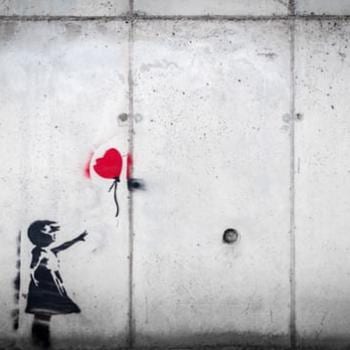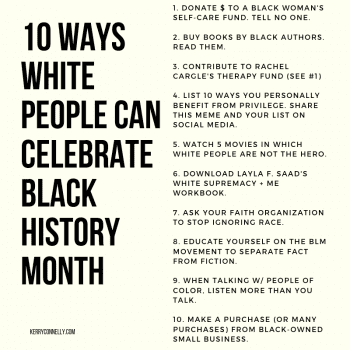I was never part of the purity movement. In fact, people who knew me when probably just spit out whatever alcoholic drink they’re sipping and are barely holding back a loud and mighty cackle. I’m not saying I’m proud of everything I’ve done, or that it was healthy. But I am pretty grateful that I never underwent some super creepy ceremony where my father gave me a ring, I was “courted” as if I were chattel, or programmed to believe that my only worth lay in my sexual status as my future husband’s first intimate conquest.
I’ve heard of the purity movement, of course, and I understand the damage it’s done to so many people, and most especially women, who often end up staying in unhappy or even abusive marriages or cave under the pressure and give up their faith. Now, the guy who practically launched the movement with his 1997 book, I Kissed Dating Goodbye, is making a documentary about how wrong he was, and how many people he hurt. And he’s getting a lot flack for it.
The purpose of this post isn’t to discuss purity culture per se, and it’s not even to call out Josh for the patriarchy woven through what was supposed to be his apologetic Ted Talk. The purpose of this post is to talk about what it looks like as men unpack their privilege, and what it looks like for us to give them room to do that.
Much of the language — or the lack thereof — for the privileged to speak about their power is simply missing. There is no mother tongue for the empowered to deconstruct their own power — or if there is, it feels foreign. Many white people don’t know how to talk about their own racist tendencies, and I figure men feel pretty much the same way when it comes to their patriarchy.
In my seminary studies, I have fallen in love with Womanist theology for many reasons, but one of the most shocking and moving ways that Womanist thinkers have rocked my world is the sheer generosity of the belief system. To describe Womanist theology as merely Black feminism is to do all of us a disservice. It’s so much more than that, and all of us — feminists included — can learn from it. One of the ways Womanist thinkers stopped me in my tracks is their belief that oppressive systems are just as harmful to the oppressors as they are to the oppressed.
This does not give the oppressor a pass, nor does it stop Womanists from calling out injustice. Quite the contrary. By necessity, these women explore the intersectionality of race, gender and class issues, and how they play out to abuse and oppress Black women, and especially Black women’s bodies. But as Black women, they also care deeply about Black men, who share their experience of oppression. And they envision a world of mutual well-being for all. From the deep riches of the Womanist theology, these women understand that a little piece of the oppressor’s soul is lost with every crack of the proverbial whip. That such compassion could be borne from such suffering is mind-blowing — and not a little bit.
So as we discuss issues like Josh Harris’s apology, I’m wondering: how can we show generosity to this oppressor, and still call him out for where he got it wrong?
The issue of being human is complex, filled with micro-aggression laden nuance. Few of us are total jerks; most of us fall somewhere on a spectrum, and we travel that wave, going from jerk to nice to jerk again depending on the situation. We all hurt people, we all make mistakes, and some of us have more power than others.
Power does not eliminate our jerk spectrum. If anything, it enhances it, elevates it, emphasizes it. There’s our jerkiness, hanging out for everyone to see. When those in power come to see their mistakes, to understand the hurt they’ve caused, they may not yet have the social skills, the broken defenses, or the mother tongue to talk about it well.
Of course, a solid “I’m sorry” is always a good place to start, and then it’s a good idea to be quiet for a little while and learn. There is a time in your education where you must cocoon, unpack, listen, watch, expand your understanding. But at some point, and especially if you have a platform, it’s time to start speaking up. In fact, it’s your responsibility to do so — and that can be scary, and unfamiliar, and dangerous for a host of reasons.
The truth is, when you start talking about what you’ve learned, you will probably say something stupid. But you should still talk. Things like patriarchy and oppression continue because everyone agrees to be complicit. Joining the conversation is a brave thing, but so is knowing when you’ve messed it up. Because unpacking privilege can get ugly.
And perhaps that’s the point. I don’t think unpacking your privilege should be comfortable or pretty. If it is, you’re doing it wrong. I don’t think that guys like Josh should necessarily have it easy when they unpack their privilege. At the same time, I do wish to show grace. I know my process of discovering that I am one step away from the top of the privilege heap as a white, Christian, straight, middle class, able-bodied cis-gendered American woman was messy and not immediate. It was a process, like peeling an onion that was rotten at its core. I smelled something, but I wasn’t sure what it was until I got to the middle of it. And who knows how many more layers I’ll find?
Critics of Josh Harris say that he is merely re-building platform on the backs of those he hurt; his apology is less authentic and more narcissistic — it’s all about him, and not about the actual people he hurt. I agree with this — but I also see the grey space where what he’s doing is important. Part of unpacking privilege includes being silent and listening. But another part is using your platform to share what you’ve learned. Because the very unfortunate truth is that just like white people are the ones responsible for healing racism, men need to take ownership of ending patriarchy.
We women can and should continue to point out patriarchy, but until men start taking action, nothing is going to change. We may not always like the way they go about it, but perhaps we need to let it unfold, continuing to point to the places they get it wrong, but holding space for men to stumble over their own patriarchal bumps in the road. It’s important to ask ourselves: do we want to be angry? Or do we want to be healed? Do we want to be separated? Or do we want to work toward mutual well-being? Do we want to love our men back to wholeness? Or do we just want to be right?
I acknowledge that I wasn’t directly impacted by the purity movement, so I have only a vague, disembodied anger about all that it stands for, but no bitter, visceral fury burning a hole in my gut, personal and intimate. I have no void of desperation where my faith may have been, no shambles of a marriage to try to piece back together as a result of Harris’s book.
For that reason, I’m probably not the best choice to critique Harris’s apology, as I’m not the one to whom it’s owed. Which in and of itself might be a lesson to anyone who has ever wondered what someone else is going on about when that someone is talking about privilege.
Speaking of anger, though, here’s what does get me — the rampant patriarchy and inherent misogyny in what Bono said recently, about how music has gotten very “girly” lately. Let’s take a happy little moment to unpack the patriarchy in THAT buttoned up little statement, shall we?
Like, how he uses the word “girly” (you know — relating to a girl) as a sort of insult, as secondary, or somehow less than.
Also, I should not have to point out, that mostly it’s women making music. Not children (unless you count boy bands). Pretty much most of them are grown ass adults. And music that women make is not childish just because it was women who made it.
Or how the statement reeks of entitlement, as if the industry has let women play, but really, enough is enough now.
Or the fallacy that because more women are making music, there just isn’t enough room for those poor men to sing their songs anymore.
How ’bout the fun sentiment that men deserve a space in which to display their rage…and the assumption that women don’t rage at all?
This kind of stuff drives me crazy — like head exploding kind of crazy. It’s the kind of stuff that makes me want to go Jersey on someone’s ass.
Bono owes women everywhere an apology — and not a watered down, “I’m sorry you’re offended” kind of apology. Here’s a chance to stand in the fiery stream of anger of all the women his words hurt and actually learn something, if he’s willing to. I am interested to see how he handles his mistake. Will he be willing to look deeply into his own patriarchy? Will he shut up and listen for a little while? And after he has learned a little, will he then use his very powerful platform to do something about it? To start a new conversation among men about how to knock this shit off? And when he does, what does a loving response from women look like? How can we love Bono through his assholey-ness without being complicit in our own oppression?
Josh Harris needs to enter more deeply into his own patriarchy and find his new mother tongue — a different way to speak about his privilege that isn’t about protecting or promoting his platform or just generally all about him. I wonder if Josh can find a new meaning and purpose that doesn’t make him the center of attention, but rather creates platform for the people he’s hurt.
As for us, I pray that we can have grace to offer, courage to call out, and the wisdom to find the balance between the two.












